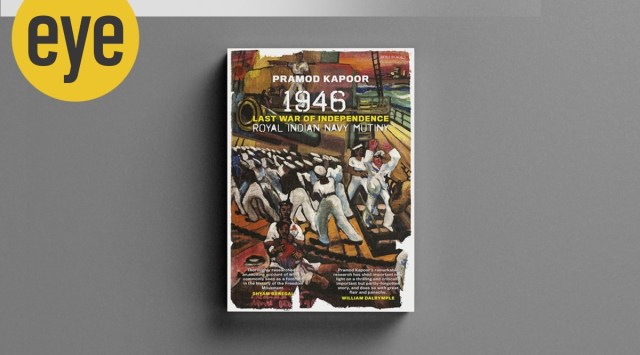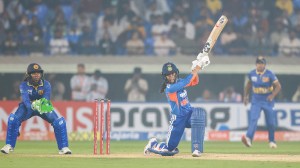How an uprising at a Bombay dock quickly turned into India’s last war of independence
The book gives a wide berth to Indian sailors who led a mutiny against the British but were soon forgotten by national leaders
 1946 Royal Indian Navy Mutiny: Last War of Independence; By Pramod Kapoor; Roli Books; 432 pages; Rs 695
1946 Royal Indian Navy Mutiny: Last War of Independence; By Pramod Kapoor; Roli Books; 432 pages; Rs 695The past in India, as in most other parts of the world, has often been a contested terrain. Official interpretations, including those in textbooks, are known to privilege the victors. Scholars have, of course, engaged creatively with lesser-known aspects of the past and contested official history creditably. However, such history writing rarely sees light outside academia and scholarly circles.
The 1946 revolt by ratings — common sailors — of the Royal Indian Navy is one such event. Despite enjoying popular support, the sailors couldn’t convince the dominant sections of the country’s nationalists. After Independence, their heroism was almost completely blanked out of official discourse.
Writer and publisher Pramod Kapoor’s 1946 Royal Indian Navy Mutiny: Last War of Independence (henceforth, 1946) is an attempt to set the record straight. Relying on memoirs, contemporary newspaper reports, official documents, and the works of other scholars, 1946 is a blow-by-blow account that sheds light on what happened at the docks in Bombay on five days in February 1946, the support for the sailors in large parts of the country as well as the “betrayal” of the established sections of the national movement.
Kapoor prefaces the account with a description of another breach of promise — of the colonial state. Forced by World War II to bolster its navy, the British government launched a massive recruitment drive promising young men the prospects of a good career on the seas with dignified working conditions.
Despite their well-documented bravery, the naval subalterns were betrayed. They had to make do with terrible quality food, cramped quarters, and daily racism. The promise of a good career after the war was never kept.
1946 is riveting for not only throwing light on what went on during the days of the uprising but also for detailing the planning that went into the insurrection. Kapoor introduces us to heroes effaced from India’s official history: BC Dutt, Kusum and PN Nair, Rishi Dev Puri, YK Menon, MS Khan and Madan Singh, among others.
But 1946 is more significant for another reason. It shows how an uprising at a Bombay dock quickly turned into the “last war of Indian Independence”, one that hastened the end of the Raj.
Kapoor talks of the inspiration by the Indian National Army, the support of young nationalists like Aruna Asaf Ali, Minoo Masani and Jayaprakash Narayan, and leftist cultural associations like the IPTA and, importantly, underlines the ways in which the ratings saw themselves as a part of the national movement.
Flying the flags of the Congress, Muslim League, and Leftists was a part of an attempt to build bridges with the nationalist struggle in the country. It was remarkable in its emphasis on communal amity and focus on the working class.
Unfortunately, other than the communists and young socialist nationalists like Aruna Asaf Ali, the leaders of the national movement not only dismissed the sailors’ calls for support but repeatedly asked them to call off the strike — perhaps, the last occasion when the Congress and the Muslim League were on one page. After the surrender of the sailors, India’s national movement failed to honour its promises to them.
1946 belongs to the league of history writing that shows how the freedom movement was not just about the Congress party, privileged in official writings. Shorn of jargon, without compromising on rigour, the book shows that the past is always layered and complex, and therein lies the joy of reading history.
- 01
- 02
- 03
- 04
- 05































